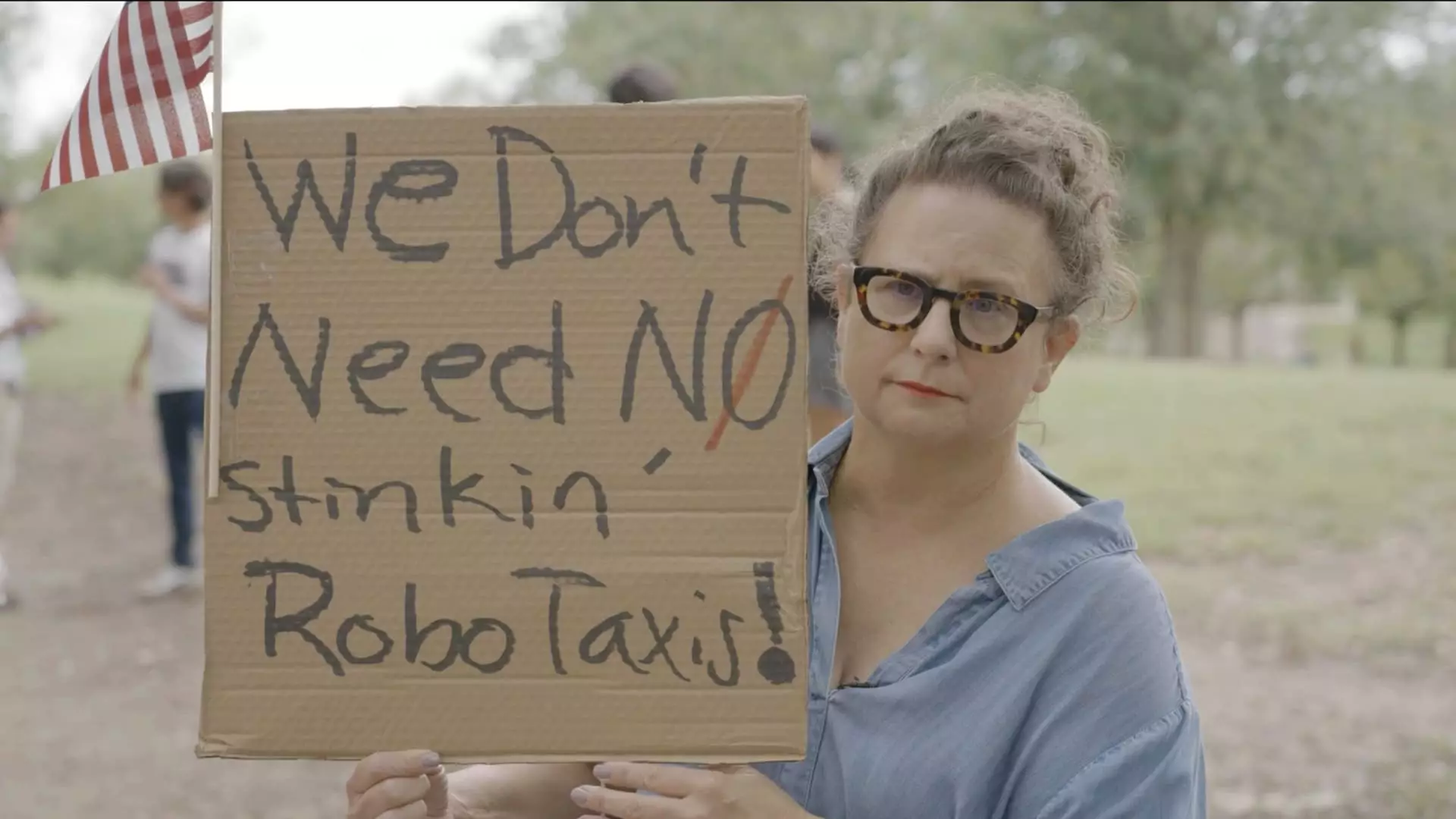As Elon Musk gears up for a pilot robotaxi service in Austin, Texas, scheduled for a tentative launch on June 22, a wave of protests has emerged in response to this innovative yet controversial venture. Activists and concerned citizens are raising alarms about the potential safety pitfalls of Tesla’s autonomous vehicles. The protests spotlight a broader unease about the intersection of technology, public safety, and corporate influence in governance. With Tesla’s promise to revolutionize transportation with its robotaxi fleet, there is an undeniable tension between progress and precaution.
Protests Fueling Public Safety Advocates
In the heart of downtown Austin, groups like the Dawn Project, Tesla Takedown, and Resist Austin convened to voice their apprehensions. Their critiques are anchored in the perception that Tesla’s driving systems, particularly their Autopilot and Full Self-Driving (FSD) features, have not lived up to the hefty promotional claims made by the company. The National Highway Traffic Safety Administration has recorded troubling incidents involving Tesla vehicles equipped with these systems, including numerous serious accidents and fatalities. This context adds a significant weight to the concerns expressed by those protesting the robotaxi service launch.
Understanding the Technology: A Double-Edged Sword
Tesla’s robotaxis, which are essentially advanced iterations of the Model Y, are equipped with the cutting-edge FSD software—a version that Musk touted in a recent demonstration. However, this “unsupervised” technology remains largely untested in the real world, raising questions about its reliability and safety. The demonstration by the Dawn Project, featuring a Tesla running a recent version of FSD software, alarmingly illustrated the vehicle’s failure to stop for a school bus with a stop sign, culminating in a mock collision with a child-sized mannequin. This theatrical display was not just a jarring image but a powerful indictment of Tesla’s readiness to deploy this technology.
The Complex Landscape of Trust and Transparency
Critics like Dawn Project CEO Dan O’Dowd argue that consumers have been left in the dark regarding the comprehensive safety evaluations of Tesla’s autonomous technologies. This sentiment resonates strongly with many protest participants, who feel that public confidence in Tesla’s safety protocols has not only been shaken but eradicated by a perceived lack of transparency. Attendee Stephanie Gomez articulated a broader skepticism, not only about safety but also about Musk’s overarching influence in political spaces, raising grave ethical concerns about the intertwining of corporate interests and governmental policies.
A Call for Caution Amidst Technological Innovation
The ongoing protests encapsulate a critical discourse on the responsibility of tech companies as they forge ahead into uncharted territories. The potential benefits of revolutionary technologies like robotaxis must not overshadow the pressing need for rigorous testing and regulatory oversight. As Elon Musk and Tesla declare their intent to reshape the future of transportation, the voices of caution remind us that technological advancement should not come at the expense of public safety. The dialogue surrounding these innovations is far from over, and only through heightened accountability can trust between the public and tech giants be rebuilt.

